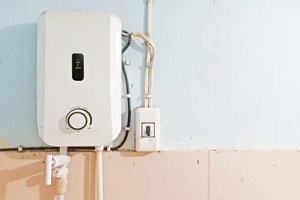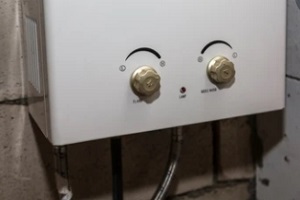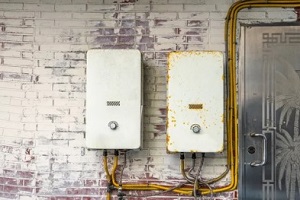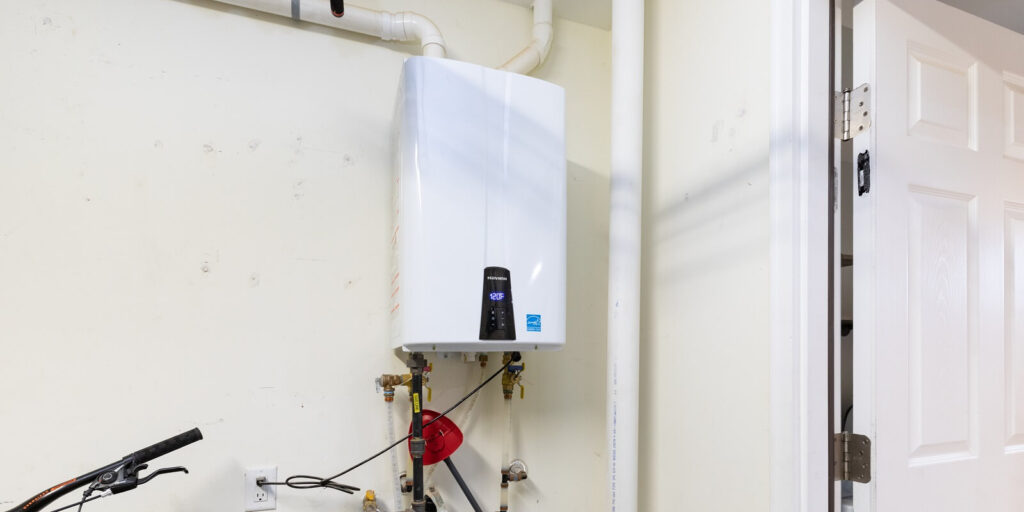
Your home’s plumbing is made up of many important parts, but when you begin to think of what could go wrong, you tend to think of the most commonly used culprits—a toilet, a showerhead or maybe a clog in the pipes.
However, many people tend to forget that their water heaters work day and night to ensure that warm water is always available anywhere in the home. This means that you should keep the age of your water heater on your radar so that you can prepare for replacement before it breaks down.
A broken water heater not only leaves your family in a tough spot (cold showers!) but can also cause water damage to your home depending on how it malfunctions due to age. So how long can you expect your water heater to last, on average?
How Long Can I Expect My Water Heater To Last?
Generally, a residential water heater will last at least six years. Many models can reach up to 13 years. However, if you do not remember the last time that your water heater was replaced, or if it has been more than 11 or 12 years, you should be preparing to replace your water heater soon.
You can improve the longevity of your water heater by taking good care of it, such as by flushing the tank yearly. The reality is that most families forget to do so, which can cause sediment buildup that shortens the lifespan of this important piece of equipment. If you do not regularly flush the tank, consider this in your calculations of how soon your water heater may need replacement.

Signs Your Water Heater Is Reaching The End Of Its Life
When your water heater begins to break down, it will likely show some symptoms that you can keep an eye out for. If you notice that your water looks odd, or if it begins to have an unusual tint, it could be coming from your water heater.
Rust building up on the inside may contribute to an unusual color. Since rust eats through metal, it is only a matter of time until your water heater begins to leak.
Be sure to check your water heater regularly for signs of leaking, especially if the machine is in your attic out of regular sight. Water heaters that have degraded to the point of leaking can cause significant water damage if the leak goes unnoticed. Similarly, if you notice that water is pooling or making puddles near the unit, it could be leaking.
If your access to hot water is intermittent or you cannot seem to get a steady temperature, you may have your water heater to blame. An old system will begin to struggle with supplying constant hot water. However, one of the most telltale signs of an aging water heater is the sounds it makes.
As hard water sediment builds up within the equipment, air bubbles that naturally exist in the water will begin to have a harder time escaping. This can cause loud gurgling or popping noises, which are a sign that your system is nearing the end of its service.

Questions To Answer Before Replacing A Water Heater
Replacing a water heater does not have to be complicated, especially if you rely on the pros. Depending on how long you’ve lived in your home, you may need to reconsider which type of heater is best for you.
How many people does it need to service? How many gallons of hot water will you need to accomplish everything that you do during the day?
Do you want a conventional water heater, or would you like to try a tankless system? A professional plumber can help you answer these questions so that you choose the right system for your circumstances. You do not need to make these determinations alone.
Call Our Expert Plumbers To Replace Your Water Heater
Whether you are unsure whether your water heater is on its last legs or you have noticed a leak and need a replacement ASAP, be sure to leave the task up to reliable professionals you can trust.
Contact the expert plumbers at Baumbach Plumbing & Remodeling, LLC would be happy to help you understand your options for your water heater and get your system replaced quickly, efficiently and within your budget.
Reach out to schedule an appointment to discuss your options, or give us a call with an emergency leak and we will arrive and conduct repairs before significant damage can be done to your home.






